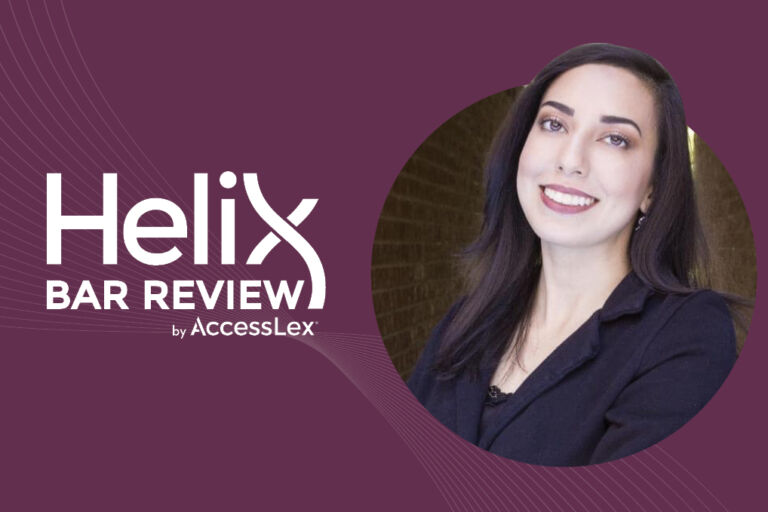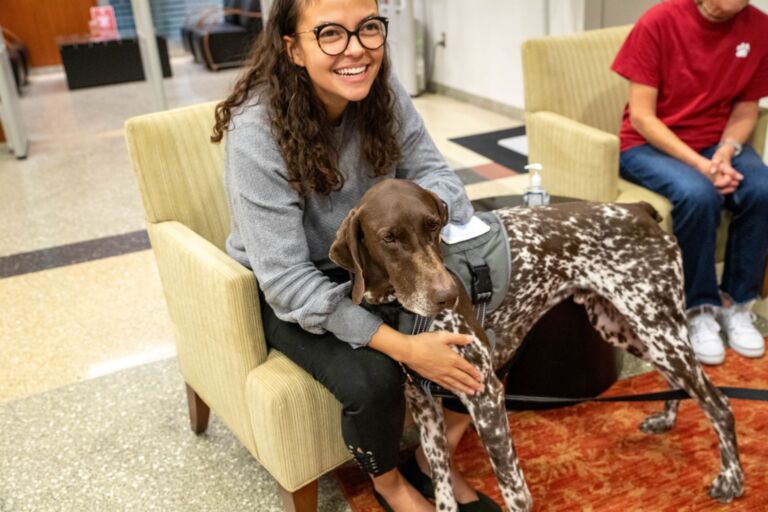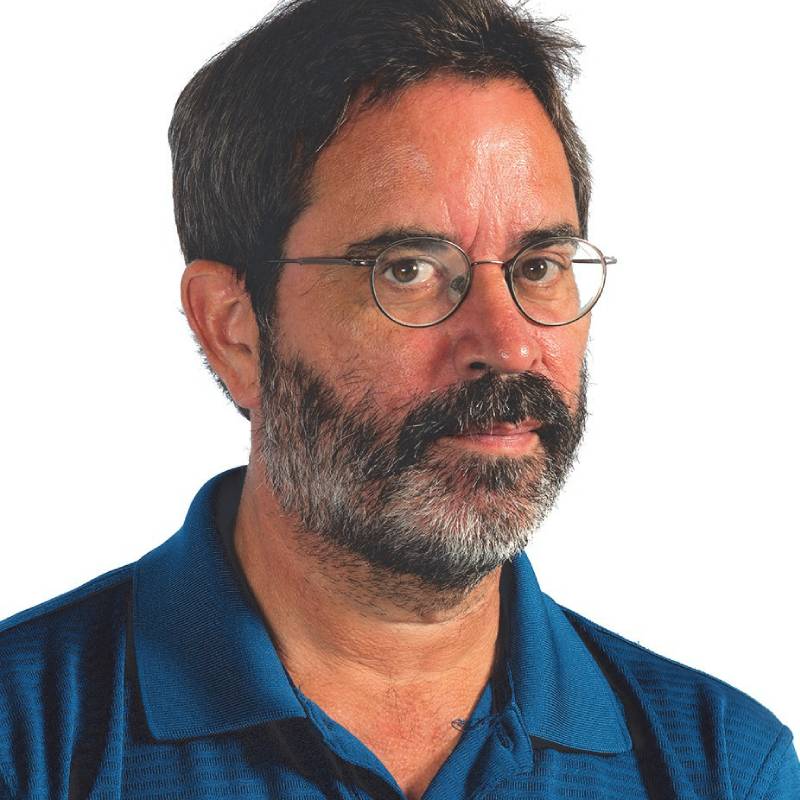The bar exam is a huge gathering of people. And that kind of large-scale social interaction is what governments are trying to avoid as the COVID-19 outbreak worsens. So what becomes of July’s test?
Some of the nation’s most respected legal educators are on it. They have published a paper, “The Bar Exam and the COVID-19 Pandemic: The Need for Immediate Action.”
They are not only concerned about health issues. They worry that a delay will cause a shortage of lawyers — at a key time.
They offer six options:
Postponement. Postponing the July exam until fall 2020 offers some initial appeal. This strategy, however, is very likely to fail, they say. The best scientific models of COVID-19 suggest that the United States will suffer several waves of infection.
The probable wave-like nature of the pandemic means that it is impossible to predict a time in 2020 when any jurisdiction could safely schedule an exam administered to large groups of people. Postponing the exam until early fall 2020, in fact, might situate the exam squarely in the second wave of the disease.
Online Exams. Jurisdictions could attempt to offer the July 2020 bar exam entirely online. The feasibility of this option would rest largely on the National Conference of Bar Examiners’ ability to move the Uniform Bar Exam (UBE) and each of its components (which some jurisdictions use separately) online.
Even if this is possible in the relatively short time remaining before July, questions would remain about providing appropriate exam security and health precautions. Could test-takers access the exam from home computers? If so, will all of them have necessary internet access and quiet locations for test- taking?
If test-takers need to visit testing centers, will those centers offer enough capacity to accommodate the large number of test-takers? Will the testing centers offer sufficient health precautions?
Exams Administered to Small Groups. In at least some jurisdictions, it might be possible to administer the bar exam in multiple locations, with no more than 10 test-takers in each room. This would require considerable advance planning and significantly more exam proctors than most jurisdictions currently use.
This option is particularly risky because, they note, even if a jurisdiction could surmount the logistical and financial challenges, it is impossible to predict the status of public health restrictions in any locality during late July.
Emergency Diploma Privilege. Wisconsin has long used a diploma privilege, which licenses most graduates of the state’s schools without the need to take a bar exam.13 This system has worked well for Wisconsin, the educators say.
Given that success, other jurisdictions should consider implementing an emergency diploma privilege to meet this once-in-a-century pandemic.The privilege could extend solely to graduates of the class of 2020 (including those who graduated in December 2019) from accredited law schools. Individuals who had previously taken and failed a bar examination in any state could be excluded.
If adopted in its pure form, this option would allow graduates to practice only in the jurisdiction where they attended law school, they caution. That constraint would hamper efforts to serve clients and would be particularly problematic for graduates (and their employers) who have already accepted jobs in other states.
This option is straightforward and easy to administer; based on Wisconsin’s experience, risks to the public are minimal. It would also be the most efficient way to get teams of licensed new lawyers on the front lines.
Emergency Diploma Privilege-Plus. Jurisdictions could tighten eligibility for the emergency diploma privilege (Option 4) by adding one or more other requirements to this emergency measure. For instance, an affidavit from an employer or externship supervisor that the candidate possesses the knowledge and skills to practice law with minimum competence.
Supervised Practice. Many jurisdictions issue student licenses that allow advanced law students to practice under a licensed lawyer’s close supervision, the educators say.
With a supervised practice rule in place, jurisdictions could then license law graduates who complete 240 hours of supervised legal work and submit an affidavit from their supervisor(s) attesting that they have successfully completed that work.
Consistent with public health guidelines, much of this work would have to occur online. Lawyers, however, are adapting quickly to the online environment and recent graduates are particularly adept with online technologies.
We Need to Act Now, they stress:
“The progress of the COVID-19 pandemic makes one point abundantly clear: It is imperative to act quickly and plan ahead. It is already time to make decisions about the July 2020 bar exam. In addition to protecting the public health, we need to preserve the mental health of the candidates hoping to join our profession this year. Those candidates are already suffering educational, family, and financial disruptions.
“We have focused in this paper on the needs of clients and the legal system, because that is the first concern of professionals. As a profession, however, we also have a duty to the students completing their legal studies this spring. As stewards of the legal profession, we need to provide humane options for these new graduates, at the same time that we guarantee a supply of new lawyers to serve pressing client needs.”
Authors:
Claudia Angelos, Clinical Professor of Law, New York University School of Law.
Sara J. Berman, Director of Programs for Academic and Bar Success, AccessLex Institute Center for Legal Excellence.
Mary Lu Bilek, Dean and Professor of Law, CUNY School of Law; Member, Council of the ABA Section on Legal Education and Admission to the Bar.
Carol L. Chomsky, Professor of Law, University of Minnesota Law School
Andrea A. Curcio, Professor of Law, Georgia State University School of Law.
Marsha Griggs, Associate Professor of Law and Director of Academic Support and Bar Passage, Washburn University School of Law
Joan W. Howarth, Interim Associate Dean for Experiential Legal Education and Distinguished Visiting Professor, William S. Boyd School of Law, University of Nevada at Las Vegas; Dean Emerita, Michigan State University College of Law
Eileen Kaufman, Professor Emerita, Touro College, Jacob D. Fuchsberg Law Center,
Deborah Jones Merritt, Distinguished University Professor and John Deaver Drinko/Baker & Hostetler Chair in Law, Moritz College of Law, The Ohio State University
Patricia E. Salkin, Provost of the Graduate and Professional Divisions, Touro College; Professor of Law, Touro College, Jacob D. Fuchsberg Law Center
Judith Welch Wegner, Burton Craige Professor of Law Emerita, University of North Carolina School of Law







